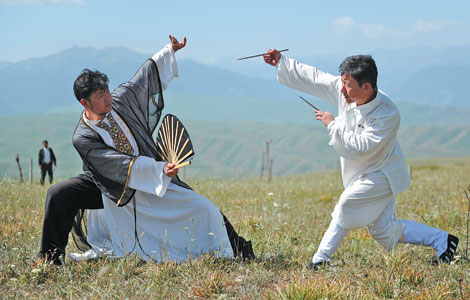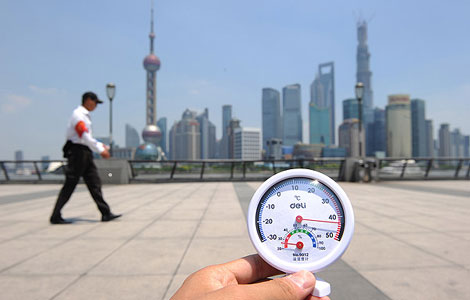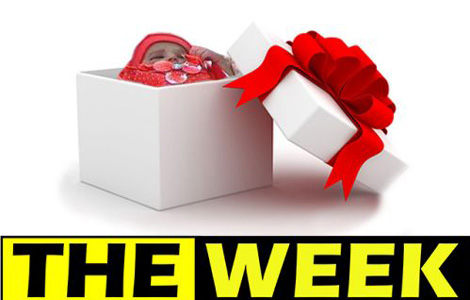Baijiu consumption stimulates imports of US sorghum
Updated: 2013-08-07 07:16
By Michael Barris in New York (China Daily)
|
||||||||
Increasing alcohol consumption in China tied to the nation's economic expansion is raising the imports of sorghum from the United States. The grain is used to make baijiu, a traditional Chinese spirit.
The International Grains Council said China's imports of US sorghum may be even greater than US farm officials thought. Agrimoney.com reported the council as saying that so far for 2013 to 2014 it has received orders for 400,000 tons of sorghum, most of which will be shipped through November to southern China.
Agrimoney.com quoted grains council analyst Chris Lawson as saying the organization received that import figure from "a couple of different sources". The council could not be reached to confirm the report.
Agrimoney.com said the council figures are greater than the US Agriculture Department's figures. A spokesman for the department declined to comment on the Agrimoney report, saying the agency would not engage in speculation. It did confirm the department data cited by Agrimoney that Chinese buyers have so far bought 13,500 tons of US sorghum for the 2013 to 2014 period and that combined export sales and shipments to China for the 2012 to 2013 are expected to reach 62,000 tons.
The increase in sorghum imports indicates that US sorghum exports are poised for a rebound after years of lean times. US sorghum production is projected to reach 10.03 million tons in the upcoming harvest - up 62 percent from last year's 6.2 million tons, according to US figures.
The increase underscores the export market's importance, according to the US Grains Council.
"With the USDA's significantly improved production estimate, combined with the good to excellent sorghum crop currently being harvested, now is a prime time to market this product around the world," Kimberly Karst, the US Grains Council director of global programs, said on the grain council's website. "Our international customers need to be reminded of the quality nutritional characteristics US sorghum offers and the increase in availability we will have this coming marketing year."
Baijiu is a distilled liquor, generally about 80 to 120 proof, or 40 to 60 percent alcohol by volume. It is made from sorghum or rice and is often served at family get-togethers, celebrations and official functions. Some scholars believe the technique for making the liquor from fermented sorghum seeds originated in the Xia Dynasty, between 2100 BC and 1600 BC.
The popularity of baijiu in China, where only about 2 percent of the volume of spirits drunk are foreign-made, has captured the attention of spirit companies looking to raise their presence in the densely populated nation.
Last week, London-based Diageo Plc, the world's largest drinks company by sales, moved to increase its ownership of baijiu joint venture Shui Jing Fang. Diageo, the maker of Johnnie Walker Whisky, said Chinese authorities gave it the go-ahead to buy the remaining 47 percent stake it didn't already own in joint venture partner Sichuan Chengdu Shuijingfang Group, also known as SJF Holdco, for 233 million pounds ($357.6 million).
The deal increased Diageo's stake in Shui Jing Fang as a whole to 39.7 percent from 21 percent while converting the baijiu venture into a foreign enterprise wholly owned by Diageo.
Diageo, which competes in China with France's Pernod Ricard SA, has been increasing its stake in the baijiu business for several years to raise its profile in emerging markets. In general, European drink makers have expanded into emerging markets such as China in recent years as sales of premium spirits slow in recession-plagued Europe.
China's recent economic slowdown could diminish immediate benefits from the deal. Last month, French alcohol maker Remy Cointreau forecast slow second-quarter demand in China for its flagship Cognac brand. Another potential complication to the Shui Jing Fang deal is the Chinese government's crackdown on corruption, which is targeting extravagant consumption and gift-giving, including that of premium liquor.
Most Viewed
Editor's Picks

|

|

|

|

|

|
Today's Top News
Baijiu consumption stimulates imports of US sorghum
Sri Lanka suspends NZ milk powder imports
Milk powder production licensees listed
PV firms face risks despite EU deal
Air force can help combat crowded skies
China sets no timetable for family planning update
China to tighten infant formula rules
Maiden flight in holding pattern
US Weekly

|

|












